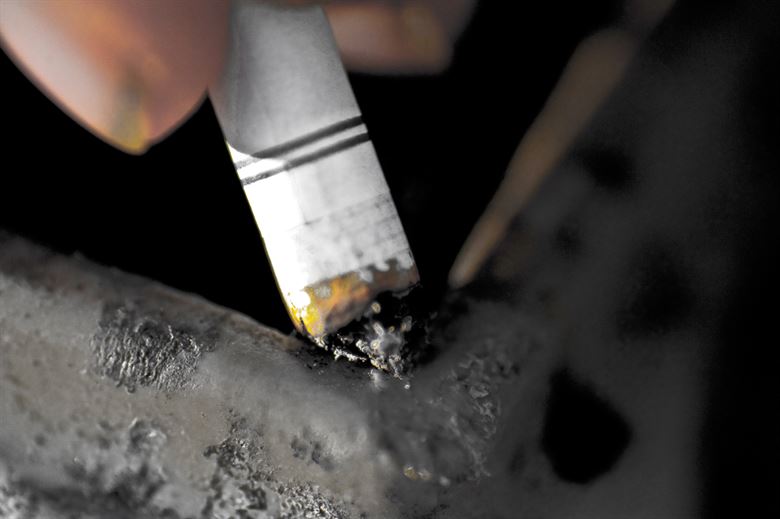With the rise in the number of liver diseases worldwide, it is of grave importance to take care of your liver. The prevalence of sedentary lifestyle and unhealthy eating habits in today’s times are the major culprit behind many health problems.
Severe liver diseases can critically damage the liver and can result in liver failure, in which the liver stops performing its function. This can lead to a number of complications and even be life-threatening. Several therapies with medications and other methods are available for treatment of liver problems.
Liver transplant is another treatment option for people with liver failure. The transplant can be performed using a deceased donor liver or a portion of living-donor liver. The surgery is considered to be expensive by many but it can be the only life-saving option in some cases. Liver transplant surgery cost in India is significantly lower in comparison to other countries and, every year, a number of people from abroad chose to travel for their treatment.
Although, several options are available for treatment of liver diseases such as non-alcoholic fatty liver disease (NAFLD), hepatitis C virus (HCV), prevention is the best strategy.
Studies indicate that making some lifestyle modifications and eating healthy can significantly contribute to keeping our body and internal organs healthy. This is also important for people who had liver transplantation surgery as they need to protect their new liver to have
- Limit alcohol consumption: Ethanol or alcohol can damage the liver cells and lead to cirrhosis or liver failure. It is advisable to keep a check on your alcohol consumption and talk to your doctor about the daily limit if you already have some liver problems.
- Have a balanced nutritious diet: Eating junk food with high-calorie, saturated fats, high sugar and refined carbohydrate content should be avoided. Having a well-balanced diet rich in fibre, proteins, fresh fruits and meat (not red meat) helps maintain a good overall health and good liver functions. Having sufficient amounts of water and fluids is also important.
- Be more active: Regular exercise is one of the most important lifestyle modifications that are recommended to keep your liver and whole body healthy. It also helps reduce weight, which is a major concern for liver diseases such as fatty liver.
Some studies report that physical activity such as aerobics should be strongly promoted for the management of fatty liver, the benefits of which are not exclusively contingent upon weight loss. According to Centre for Disease control (CDC), moderate alcohol use is having up to one drink per day for women and up to two drinks per day for men.
- Avoid smoking: Cigarette (tobacco) smoking is another leading risk factor for liver damage. Smoking is associated with several harmful toxins that can potentially travel to the liver and deteriorate or damage the tissue over time. For people already suffering from liver related disease, smoking can trigger it or worsen the condition. Therefore, it is important to quit smoking to keep your liver healthy.
- Manage stress: An increasing number of research have discussed the link between psychosocial stress and its negative effects on hepatic functions. It might be news to many as people are generally not aware of the connection between liver health and stress. Stress affects us in many ways and can be one of the biggest enemies of the liver. So, make sure you manage your stress – take out time to relax and unwind every once in a while. You can pick up activities that help you relax and prevent you from falling prey to stress. This could be travelling for some people or joining recreational activities such as dance classes or simply taking up a part-time hobby. It is important to take part and do activities that makes you feel good from within.
- Do not use illicit drugs: According to the National Survey on Drug Use and Health (NSDUH), a significant portion of the population use illegal drugs such as marijuana/hashish, cocaine (including crack), heroin, hallucinogens, inhalants, or prescription drugs such as psychotherapeutics (pain relievers, neurological stimulants, and sedatives) for recreational purposes. These drugs severely affect the liver and a long-term exposure to them can cause critical liver damage.
- Regulate use of medicines: Certain drugs such as those for management of cholesterol and painkiller such as acetaminophen can be toxic to the liver. It is important to regulate their uptake and should not be taken too much over time or at once. Certain combinations of drugs can also be harmful to the liver. Talk to a specialist to check what kind of drugs should not be mixed with each other or with alcohol.
- Prevent hepatitis infection: There are different types of Hepatitis virus and each spread in different manner. Hepatitis B and C can spread through blood and body fluids. So it is advisable to avoid exposure to contaminated needles, get vaccination and practice safe sex.
- Avoid toxins: There are certain toxins that can injure liver cells. Limiting direct contact with these toxins found in cleaning (aerosol) products, insecticides, chemicals, and additives is important. While using the aerosol products, make sure the room is properly ventilated and wear a mask when working.
- Have coffee: Many Researches suggest that regularly drinking of coffee in moderate amounts (three to five cups per day) is associated with reducing the risk of liver diseases. It has also been associated with decreasing liver cancer risk by almost 40%. The World Health Organization has also confirmed this positive link between coffee and less risk of liver cancer in 2016 after reviewing over 1,000 clinical studies.
People who drink coffee a day are also less likely to develop liver diseases such as scarring, fibrosis and cirrhosis.
It may even slow or delay the progression of these conditions in people who have them. All types of coffee- filtered, instant, and espresso seem to work. However, coffee may be helpful, but it can’t replace the need of having a balanced diet, maintaining a healthy weight, drinking plenty of water, and regular exercise for a healthy liver.







